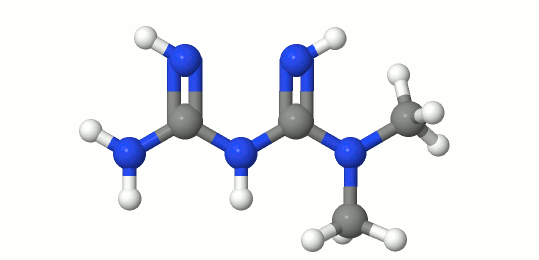
Can a drug to treat diabetes and a drug to treat hypertension be an effective anti-cancer combination?
January 8, 2017Data is preliminary and still being tested in mouse models, but a recent paper in Science Advances details that combining a diabetes drug, metformin, with an anti-hyptertensive, syrosingopine, may work to prevent cancer cell growth. The December publication by Don Benjamin and colleagues shows how these two common drugs may interact.
Metformin is a common diabetes drug that has been shown to have anti-cancer properties. (see Evans, Libby, Jiralerspong, DeCensi, and Noto. It is thought that because metformin works to reduce blood glucose levels, there is less glucose available for cancer cells that thrive on the sugar. While there are data that show metformin as an effective anti-cancer agent in in vitro and in vivo models, there are other studies that show no effect (see Stevens, Nayan, Wu, and Kordes). At issue, too, is that the concentration of metformin needed to be an effective cancer prevention drug is quite a bit higher than what is needed to treat diabetes.
Benjamin and colleagues decided to look for drug combinations that when given together at lower doses would prevent cancer cell growth and, importantly, not affect non-cancerous normal tissues. After testing many candidates plus metformin, both given at lower concentrations, they found an anti-hypertensive drug, syrosingopine. In cell testing, the combination killed multiple cancer types, but not normal tissues grown in cell culture. In mouse models, the drugs worked together to kill liver cancer tumor cells and return the liver to a more normal phenotype.
How does this work?
The study goes on to show that the combination induces apoptosis through inhibition of mitochondrial function. More work is needed to fully characterize how these drugs together induce cell death and if this work can be translated to other cancer types in mouse models and, ultimately, in humans.